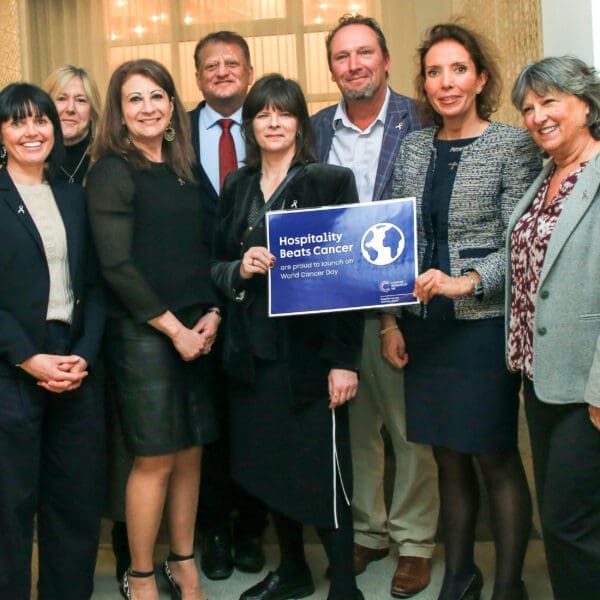 A recent webinar hosted by EUHOFA International, (The International Association of Hotel, Hospitality, Culinary Arts and Tourism Schools) brought together hospitality educators from around the world to discuss whether hospitality education is in decline and to discuss potential solutions. Moderated by Professor Peter Jones, EUHOFA Board Advisor, the webinar featured a panel of experts including Dominic Szambowski, Dean of Swiss Hotel Management School, Andrew Boer, Principal of Edge Hotel School at the University of Essex, and Stuart Wiggins, Pro Vice-Chancellor at ICMS, Sydney, Australia.
A recent webinar hosted by EUHOFA International, (The International Association of Hotel, Hospitality, Culinary Arts and Tourism Schools) brought together hospitality educators from around the world to discuss whether hospitality education is in decline and to discuss potential solutions. Moderated by Professor Peter Jones, EUHOFA Board Advisor, the webinar featured a panel of experts including Dominic Szambowski, Dean of Swiss Hotel Management School, Andrew Boer, Principal of Edge Hotel School at the University of Essex, and Stuart Wiggins, Pro Vice-Chancellor at ICMS, Sydney, Australia.
The webinar began with data showing declining student enrolment in many hospitality programmes globally, along with some programme closures and mergers. However, the demand for hospitality staff remains high, raising questions of whether this decline is permanent or if hospitality education can bounce back. Panelists noted the decline varies by region, for example in parts of Asia, hospitality programmes are growing with student demand. But in Europe, institutional mergers and closures have occurred with the decline in students.
The reputation and uniqueness of hospitality programmes impact their long-term viability and in many cases, the core values of hospitality have been lost in generic business with hospitality curricula. It was noted that programmes that are still based on rigid academic traditions lack flexibility and innovation and are slow to respond to changes in the industry. Nimble private institutions tend to fare better in presenting unique and relevant programmes than do the large public ones facing funding constraints, rigid academic structures and bureaucracy.
Several factors potentially impacting hospitality education were discussed. Government and public perceptions of the industry have changed in some countries, influencing student interest. Decreased public funding for hospitality programmes was identified as an issue as well as cultural shifts and differing generational values that may lessen the appeal of hospitality careers. There are also misunderstandings about what hospitality education involves, often overlooking the essential combination of professional industry skills and academic knowledge, that can be characterised as the art of ‘doing’ with the science of ‘knowing’.
Several participants observed that professional skills alone are insufficient. Transferable human skills like communication, teamwork, understanding the consumers and self-directed learning are crucial for students’ adaptability and mobility. For potential students and career entrants, digital developments, sustainability, and environmental concerns are very important as are the opportunities for flexibility, and work-life balance.
Apprenticeships and applied work-based education were repeatedly endorsed by the panelists and the participants, as opportunity and benefit to students, over purely rigid academic models. Students want to earn while learning and have a more flexible approach to gaining qualifications. This may be differing models that include, micro-credentials, and stackable modules, through hybrid flexible blends of online, face-to-face and work-integrated options. It is understandable that these models are more attractive than full-time hospitality programmes to potential students and career entrants. It was emphasised by many of raw participants that industry partnerships are essential in developing these more flexible approaches and in co-creating relevant and flexible educational and training pathways.
In summary, declining enrolment in some hospitality programmes accompanies high industry demand for qualified graduates. While concerning, this also presents opportunities to engage stakeholders in creating more innovative and responsive education models. With passion and collaboration, the webinar speakers conveyed optimism that hospitality education can evolve to be dynamic and impactful. The future will involve flexible blends of online, face-to-face, and work-applied learning that focus less on rigid academic structures and more on the professional ‘doing and ‘knowing’ valued by students and industry employers.
Editors Note: as part of our ongoing commitment to hospitality education training, we will be working with partners on a research project to better understand the “gap” that seems to exist between hospitality education and the industry. This will take the form of a major international survey that we will encourage all of our readers to participate in when published shortly.
Professor Peter A Jones MBE is a Board Advisor to EUHOFA International, Academic Director of eHotelier and Chair of the Crumbs Project.



















